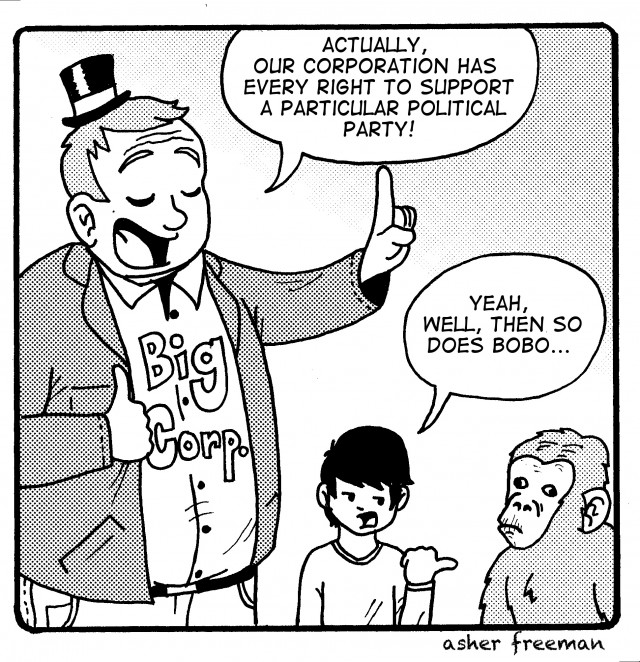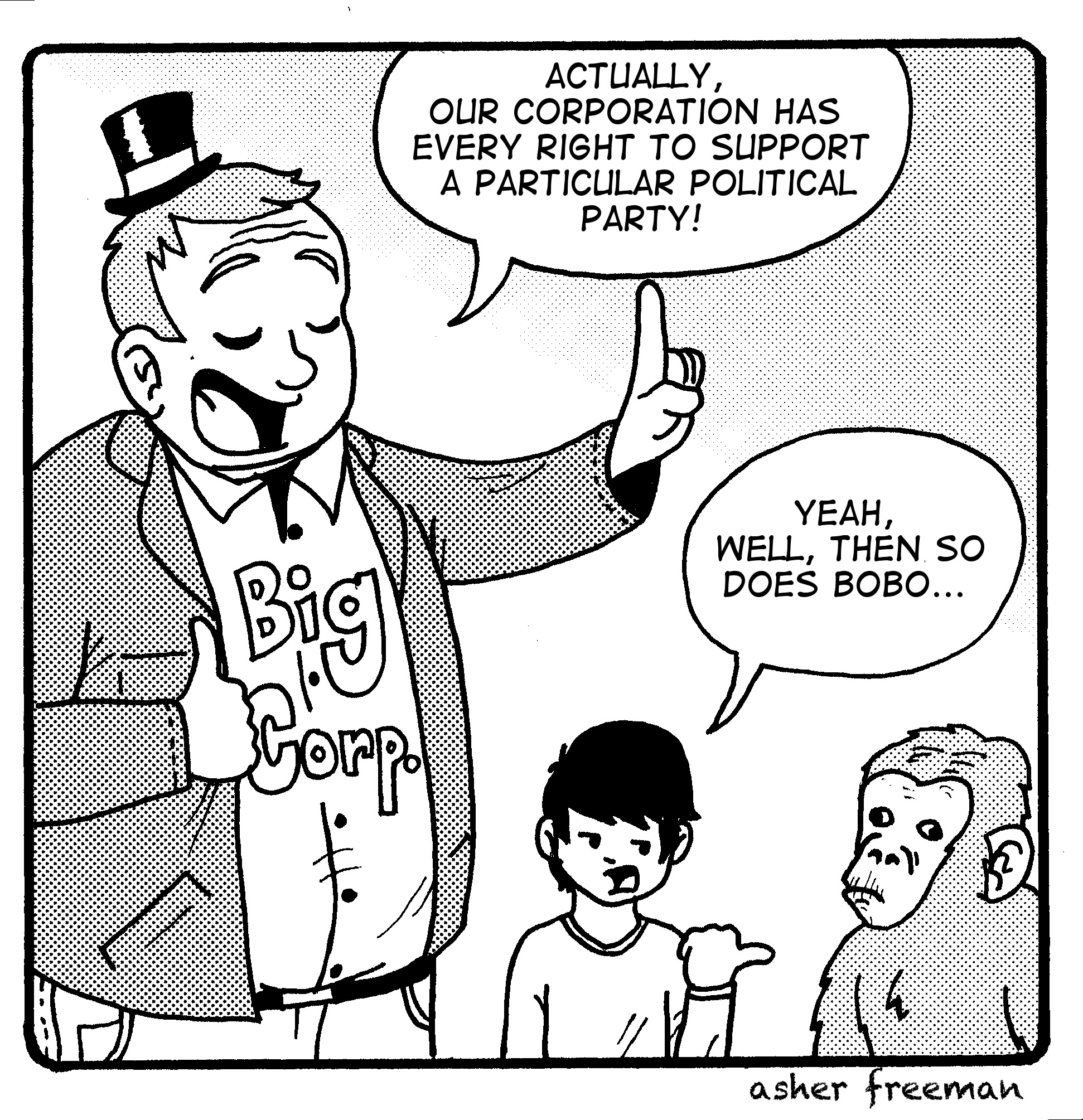
Congress shall make no law respecting the establishment of religion or prohibiting the free exercise thereof; or abridging the freedom of speech; or of the press; or the right of the people peaceably to assemble, and to petition the Government for a redress of grievances.
Are corporations people?
We at the Lariat don’t know, but they have some of the same rights, including protection for the freedom of their political speech under the First Amendment.
A key point — nowhere in the text above will you find language that restricts these freedoms to people. And yet we cannot help but speculate on the intent of our Founding Fathers in leaving out this crucial language. Perhaps they thought it was evident these protections were for people — and would obviously not be applied to, say, inanimate objects, corporations or chimpanzees —and thus felt such language would be unnecessary. Corporations have capitalized upon this error. Perhaps those other groups could gain First Amendment protection too, although free speech for chimpanzees has a significantly less vocal and certainly less wealthy lobby.
This freedom can be attributed to the decision of a 2010 Supreme Court case, Citizens United v. Federal Election Commission. The court ruled the government cannot restrict corporations and unions from spending money on politics — the First Amendment prevents that. Assuming the funds are available, these entities may spend unlimited sums on electioneering.
Prior to Citizens United, individuals and corporations could still participate by utilizing “527 groups” or social welfare groups, but these could not overtly promote a specific candidate or use corporate money for advertising of a specific candidate. Now corporations are free to invest in their future by trying to influence elections. The old groups have been mostly replaced by the super PAC system, which can’t contribute directly to candidates or their parties, but can buy advertising endorsing one or the other.
A criticism of Citizens United must include a criticism of the super PAC system, which often fails to check the power of corporations or moneyed interests participating in the election process. Hazy laws about donor financing allow for the names of super PAC donors to be hidden through several means. How can citizens then begin to distinguish what interests promote what and why?
As young journalists, we understand that money is time —time onscreen. The more money you have, the more advertising you can purchase. Corporations, especially big ones, undoubtedly have more resources than the average individual to spend on campaigns.
These corporations stand a greater chance of influencing a wider audience than private citizens because they may purchase more advertising. This is fundamentally unfair to those private citizens, who likewise have an interest that may not receive the promotion it deserves.
And so we exercise a right of our own — we petition for a redress of our grievance against this flagrant miscarriage of justice.
President Obama — we intend to hold you to your hopes expressed on Reddit earlier this year to negate the influence of Citizens United, and we urge Mitt Romney to work toward the same end if he is elected.
The American people and their leaders must ensure that the speech of the people won’t be drowned out by moneyed interests in the buying of elections.
Citizens, re-unite.






